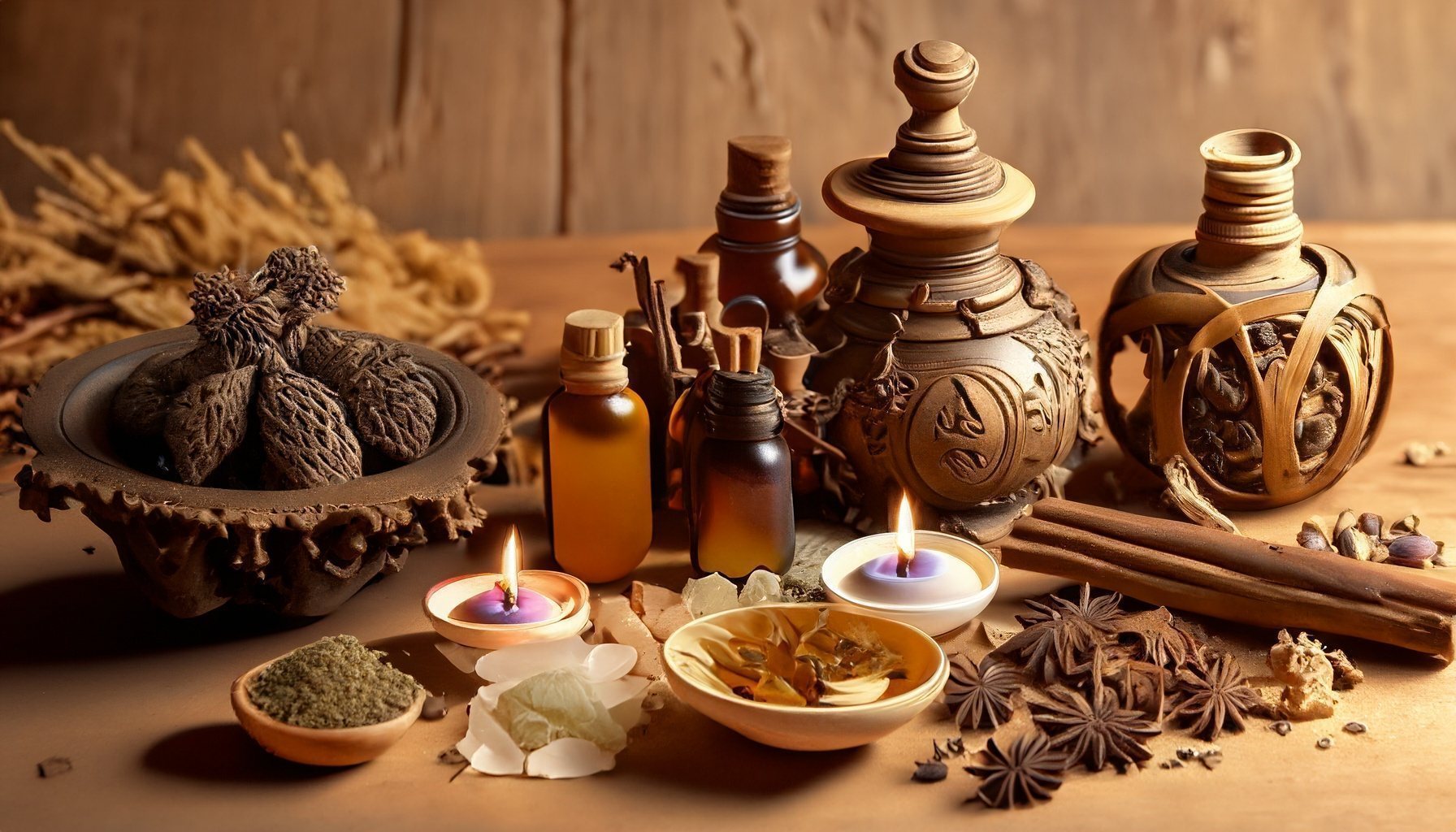
Let’s explore the influences of 12 iconic natural aromatics that have shaped human civilization in profound ways.
1. Frankincense
This resin has been widely used in religious rituals, traditional medicine, and perfumery for thousands of years. It has anti-inflammatory properties and a distinctive, spiritual aroma. It’s most commonly associated with the biblical tale of the Three Wise Men presenting it as a gift to the newborn Jesus. See also: Frankincense: What is it and How is it Used?
2. Myrrh
Like frankincense, myrrh is often associated with ancient religious practices, especially in Christianity and Ancient Egypt. It is known for its antiseptic, anti-inflammatory, and analgesic properties and is used in traditional medicine. See Also: Myrrh: Uses, Benefits, and Safety Guidelines
3. Sandalwood
Prized for its long-lasting scent and medicinal properties, sandalwood has been highly valued by many civilizations. It’s used in religious ceremonies, traditional medicine, and the making of perfumes and cosmetics. See also: A History of Sandalwood
4. Cinnamon
As one of the oldest spices, cinnamon has been used for its aromatic flavor in cuisine, as well as its medicinal properties, since ancient times. It played a crucial role in the spice trade.
5. Rose
Roses and their fragrance have been symbols of love and beauty throughout history. They are also used for their therapeutic properties in aromatherapy and skincare products.
6. Lavender
Known for its calming and soothing properties, lavender has been used in perfumery, medicine, and culinary arts. It’s particularly noted for promoting relaxation and sleep. See also: Why is Lavender Calming?
7. Peppermint
The minty aroma and cooling effect of peppermint have made it popular in food, beverages, medicine, and personal care products. It is known for its digestive and analgesic benefits.
8. Jasmine
Valued for its sweet, romantic fragrance, jasmine has been a favorite in perfumery and tea infusions. It is also associated with relaxation and has been used in aromatherapy.
9. Patchouli
It has a strong, earthy aroma used in perfumery and incense. In the 1960s and 1970s, it became popular as a countercultural symbol. See also: A History of Patchouli
10. Clove
Cloves have a warm, sweet, and slightly bitter aroma. They have played a vital role in the spice trade and have been used for their antiseptic and analgesic properties. See also: A History of Cloves
11. Eucalyptus
Known for its fresh, clean scent, eucalyptus is often associated with respiratory health and has been used in traditional medicine, personal care products, and aromatherapy.
12. Vanilla
This popular aroma, derived from orchid pods, is widely used in food, beverages, perfumes, and aromatherapy. Vanilla has been associated with comfort and warmth.
